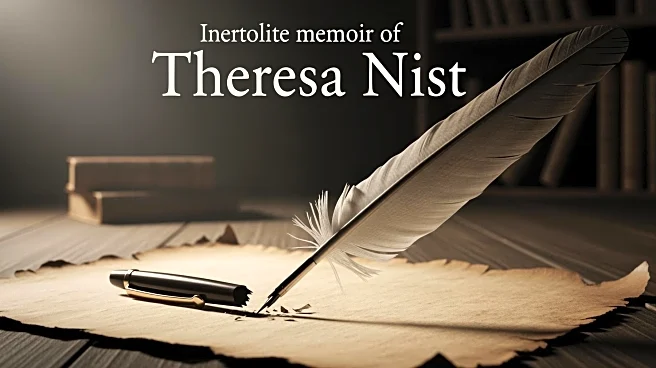What's Happening?
Theresa Nist, a former reality TV star known for her brief marriage to the Golden Bachelor, has ignited controversy with her recent memoir. During an appearance on the Dear Shandy podcast, Nist recounted
a chilling remark made by her ex-husband, stating, 'That's where I'm going to hide your body.' This comment, which she emphasized was not made in jest, has become a focal point for critics and fans alike. The memoir, released in early November 2025, has prompted renewed public interest and debate over the nature of their relationship. The podcast episode aired on November 4, 2025, and has since been widely discussed, with the remark serving as a concrete hook for reassessing the memoir's narrative.
Why It's Important?
The controversy surrounding Theresa Nist's memoir highlights the impact of personal narratives on public perception, particularly in the realm of reality television. The remark has divided audiences, with some interpreting it as dark humor and others as evidence of a troubling pattern. This split in public opinion underscores the power of media in shaping narratives and influencing reputations. The memoir's release and subsequent podcast discussion have reopened private disputes, turning them into public controversies. This development may affect the Golden Bachelor franchise's image, as networks and PR teams navigate the fallout from the renewed scrutiny.
What's Next?
The ongoing debate over Theresa Nist's memoir and podcast remarks is likely to lead to further interviews and discussions, as both fans and critics seek more context. The controversy may prompt legal considerations or public relations efforts to manage the franchise's reputation. Additionally, the memoir's sales could be impacted, either spiking due to increased interest or declining under the weight of negative publicity. Producers and stakeholders in the reality TV industry will need to address these challenges to protect their brand and maintain audience trust.
Beyond the Headlines
The ethical implications of airing private disputes in public forums are significant, raising questions about the boundaries of personal storytelling and the responsibilities of media platforms. The controversy also highlights the cultural fascination with reality TV and the blurred lines between entertainment and real-life drama. As audiences engage with these narratives, the potential for long-term shifts in how reality TV is perceived and consumed becomes apparent.








